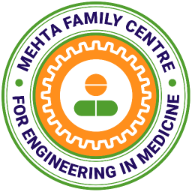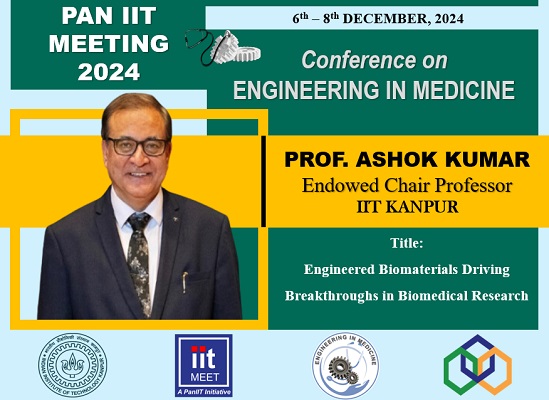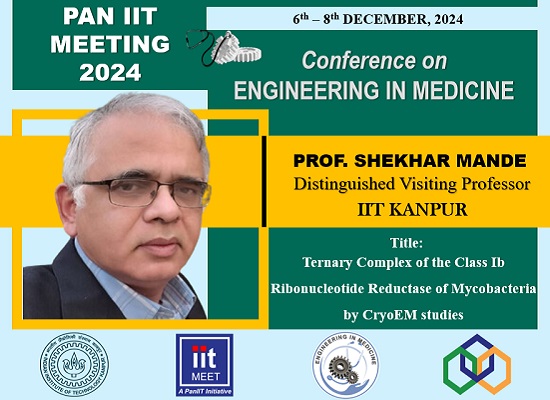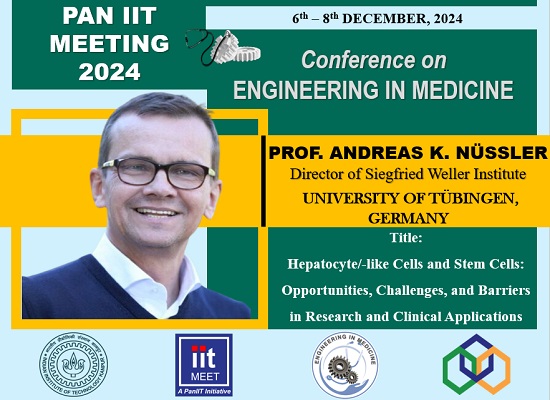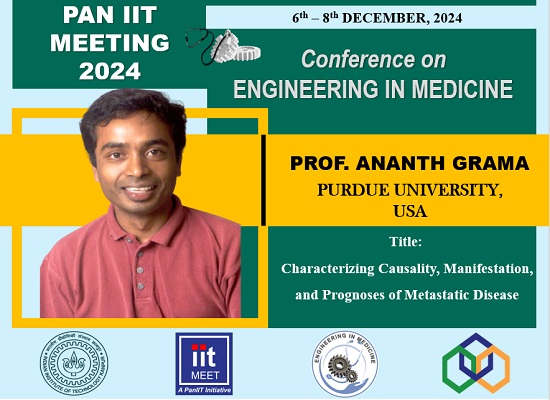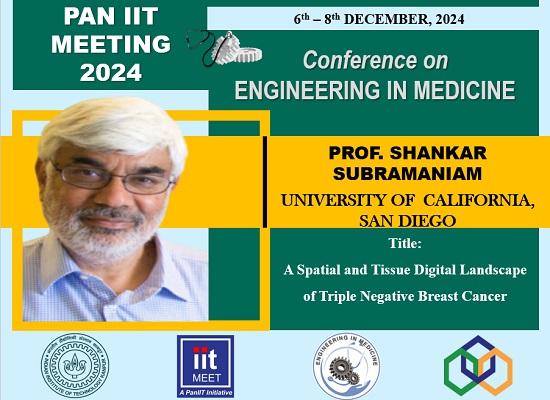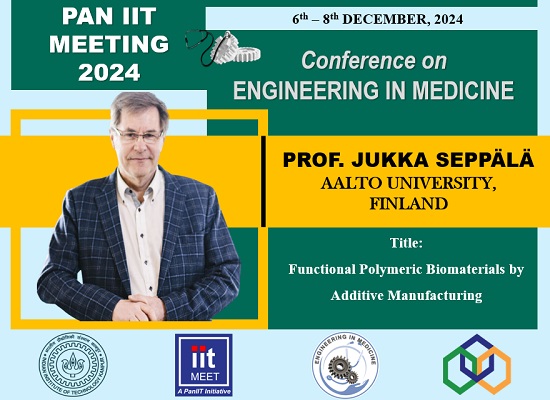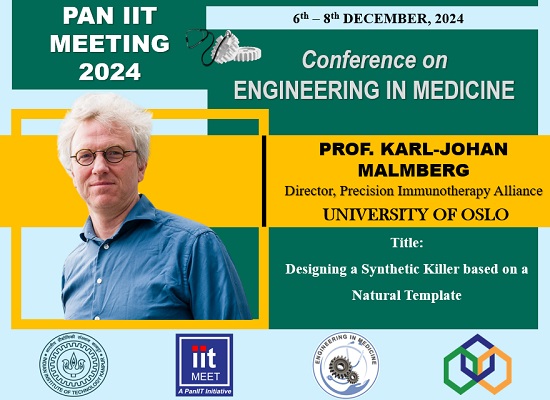Digital Medicine
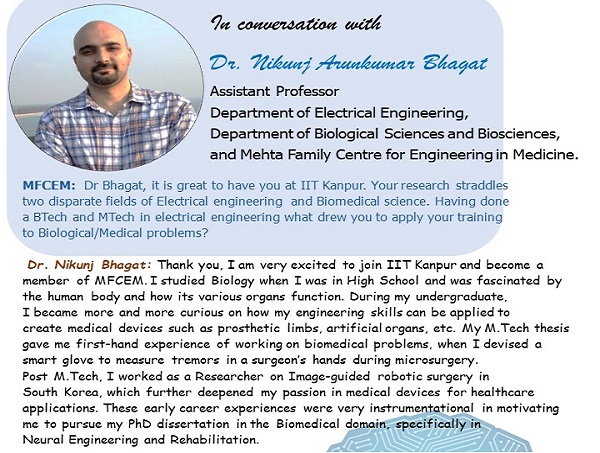
In conversation with
Dr. Nikunj Arunkumar Bhagat
Assistant Professor
Department of Electrical Engineering,
Department of Biological Sciences and Biosciences,
and Mehta Family Centre for Engineering in Medicine.
MFCEM: Dr Bhagat, it is great to have you at IIT Kanpur. Your research straddles two disparate fields of Electrical engineering and Biomedical science. Having done a BTech and MTech in electrical engineering what drew you to apply your training to Biological/Medical problems?
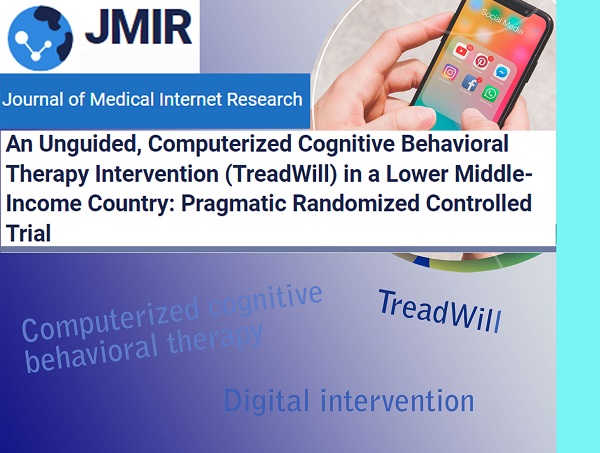
Mental health issues such as depression remain inadequately addressed particularly in low- and middle-income countries (LMICs). In a collaborative study, Prof. Nitin Gupta and team have developed a new Unguided Computerized Cognitive Behavioral Therapy (cCBT)-based intervention: TreadWill; its use significantly reduces anxiety and depression in users. TreadWill holds great promise as an easy to use and an accessible intervention technology.
https://pubmed.ncbi.nlm.nih.gov/37099376/
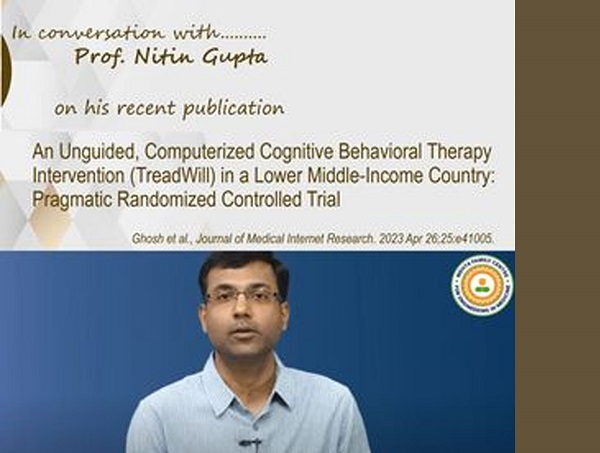
Prof Nitin Gupta talks about his recent published study on developing a new unguided Computerized Cognitive Behavioral Therapy (cCBT)-based intervention: TreadWill; and how its use significantly reduces anxiety and depression in users. The study was published in J Med Internet Res, April 26 2023.
https://www.youtube.com/watch?v=kD0-amDM3JQ
Overview
Increased penetration of internet and mobile technologies, along with advances in AI and modelling, present opportunities for a new paradigm in medicine: software is poised to take the role of a doctor in diagnosing the disorders; of a therapeutic aid or even therapy itself in the case of psychiatric problems; and of a powerful research tool in discovering new medicines. IIT Kanpur has strengths in these different domains of digital medicine.
Translational Value
Psychiatric and neurological disorders are among the largest but least addressed sources of disability in all countries. Depression alone affects 300 million people globally. The digital tools for psychiatry are readily translatable given the high penetration of internet-enabled mobile devices. TreadWill, developed at BSBE as an intervention for depressive symptoms, is currently undergoing a double-blind randomized controlled trial in human patients after clearance from the Institute Ethics Committee and registration at the NIH’s clinicaltrial.gov portal (https://clinicaltrials.gov/ct2/show/NCT03445598). It has already achieved the target of 600 study participants, and the results are expected to be out in late 2019. If the results show reduction in depression scores post-intervention, the tool can be released for public usage. Subsequent digital therapeutic and diagnostic tools developed at the center will also be rigorously tested and then released widely.
Future Plan/Grand Challenge
Digital technologies are powered by data. While the growing population of India (poised to become the largest in the world by 2024) and the wide range of socio-economic strata present a massive healthcare challenge, they also present a unique opportunity in terms of the amount of data generated that can be used for the development of the digital medicine approaches. Despite the huge burden posed by psychiatric problems, the treatment approaches for most brain disorders are outdated and ineffective. With increasingly stressful lifestyles, there is a pressing need to develop new forms of therapies, and to do this effectively we need to bring in artificial intelligence and cognitive science into the fold of brain therapeutics. The challenge that we would like to address is whether we can harness these technologies to develop new and effective digital interventions for various psychiatric disorders, including anxiety, obsessive compulsive disorder, borderline personality disorder, and addiction? Similarly, can we develop automated diagnostic tools using various kinds of medical images and real time monitoring of patient information using mobile devices? These digital technologies have the potential to democratize healthcare in India and other developing countries by addressing the shortage of doctors and medicines with high scalability and low costs. IIT Kanpur, with its strong roots in computing and engineering, and strong programs in BSBE and cognitive science, is in an ideal position to develop the next generation of digital medicine tools.
